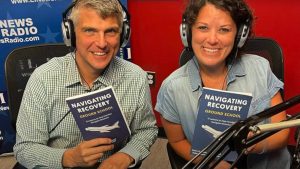
Reaching Out
I’m always amazed when someone is reaching out and make the first call for help. I get excited that they are making their first call into Adam Banks Recovery. Someone is reaching out for help in a situation that’s troubled them for a long while, usually many years. Consequently, a lifetime of change can happen from that one action.
There are many similarities in these introductory conversations about a drug or alcohol addiction. The caller is always nervous, afraid to talk openly, and afraid to divulge fully. Hence, it’s understandable that they’re nervous.
The Reservations on the Caller’s End
Picking up the phone and telling a stranger about deeply personal issues is a difficult thing to do. So, I start these calls with a bit of my story. I let the caller know that I am in recovery myself. It helps them know I understand what a difficult call it is to make. And to build trust, I assure them that what they say is anonymous.
Even with that information, the caller gives a fake name and is vague about the details of their suffering. Honesty is crucial for the team at Adam Banks Recovery to be able to help the person and is a key tenet of sustained recovery. After a few uncomfortable minutes, the caller finds the strength to open up.
The truth about what they’re going through unveils. For the first time in their life, they will open up and get help for their drug and alcohol addiction.
People struggling with substance use disorder often try to downplay the degree to which they’re hurting. They do this either on purpose to hide their behavior or because they aren’t ready to admit the whole truth. When someone on the other end of the call opens up to me, it’s a big step forward. Because they most likely haven’t told anyone who understands and can help before.
My Goal On The First Call
My goal on the first call is always to educate the person on the other end of the line. Due to the nature of substance use disorder, I may never hear from the caller again, or more likely, they’ll call me back in a few weeks. When they do, I assure them that there’s hope.
I have seen successful paths to recovery for many different people, including the person I see in the mirror. I want the caller to understand what options are available for them. My hope is that when they hang up with me, they’re inspired to enter recovery.
Finally
The first call sets the ball in motion for a suffering person to move towards the path of recovery. From the outside looking in, a phone call looks small. However, that person have been thinking about dialing my number for weeks, years even.
Picking up the phone is a concrete action that sends the message that this person is ready, in some sense, to make a change that will reverberate throughout their life and all the people around them.
About Adam Banks
Adam Banks is a certified interventionist and the owner of Adam Banks Recovery. After receiving an MBA from the University of Chicago, Adam built a company acquired by United Health Care. His discipline and attention to detail comes from his former career as an airline pilot, holding an ATP, the FAA’s highest license.
Today, Adam is dedicated to helping others achieve long-term sobriety. His work has guided executives, pilots, and physicians on paths to recovery. Adam brings families together through a loving and inclusive approach.
Adam has authored four books on addiction. His recent work, Navigating Recovery Ground School: 12 Lessons to Help Families Navigate Recovery, educates families on the entire intervention process. He also offers a free video course for families considering an intervention for a loved one.
Adam is available for alcohol and drug intervention services in New York, Long Island, the Hamptons as well as nationally and internationally.




